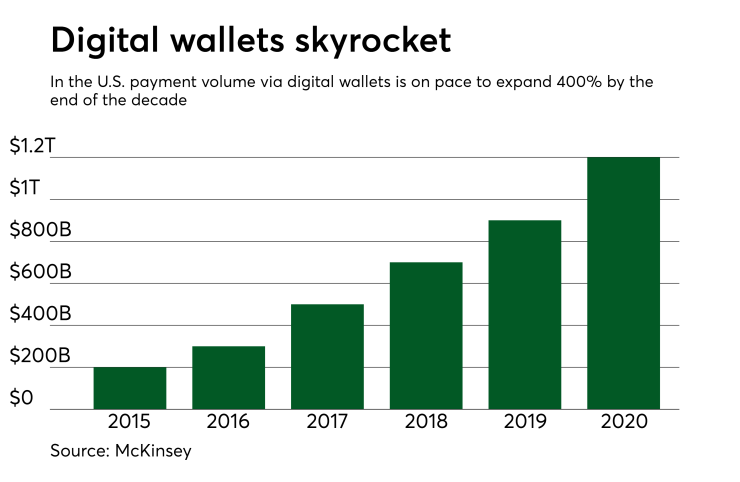As retailers work to address the operational challenges posed by cash and card acceptance, mobile wallets offer a versatile solution.
Despite huge recent advances in digital and electronic payments, cash use remains prevalent worldwide. This presents various challenges for retailers. It is easy to steal. And there are also significant costs associated with its handling and processing.
Promoting payment card acceptance, however, also presents its own challenges. To process debit and credit card transactions and manage the payment rails, the payment networks charge an interchange fee for each card transaction. Some merchants’ attempts to avoid these charges have had a detrimental impact on the consumer experience, whether it be through card surcharges or higher prices.

But mobile wallets can help in a variety of areas. Loyalty functions, for example, can be used to encourage the use of a store-branded, closed-loop payment card. As these cards can only be used at the specific retailer, they are not subject to the interchange fees levied by the big payment networks, putting between 2% and 6% back in retailers’ pockets.
Similarly, wallets with in-app payments functionality enable customers to checkout in-aisle. This reduces the requirement for extensive point-of-sale infrastructure, while at the same time removing the need to wait in line and promoting a “just walk out” buying experience. This reduces overheads and increases throughput and revenues.
Finally, mobile wallets can incorporate various technologies and techniques to enhance security and mitigate risk, reducing the likelihood and impact of fraud. In particular,
To remain competitive, retailers must always have one eye on the future. Mobile wallets offer a strategic platform for retailers to harness and promote emerging payment models.
Take account-based payments, which are growing in popularity following the introduction of regulations such as PSD2.
PSD2 creates the opportunity for retailers to assume new roles within the merchant acquiring ecosystem and offer payment services directly. This creates efficiencies for retailers by reducing processing fees and administration. The consumer experience is also enhanced as payments can be cleared and settled instantly. And as retailers also have increased insight into customer preferences and behaviors, they can deliver more tailored and personalized services.
Looking beyond account-based payments, cryptocurrencies could yet emerge as a powerful payment method for retailers. Importantly, mobile wallets allow these alternative payment methods to be offered alongside more traditional approaches to ensure that the requirements of an entire customer base are serviced.
It is the innate flexibility of mobile wallets that empower merchants to add value to the customer experience by promoting convenience and choice, while simultaneously creating all-important operational efficiencies and business benefits.





